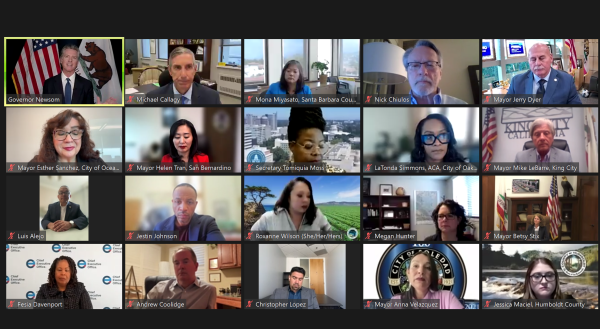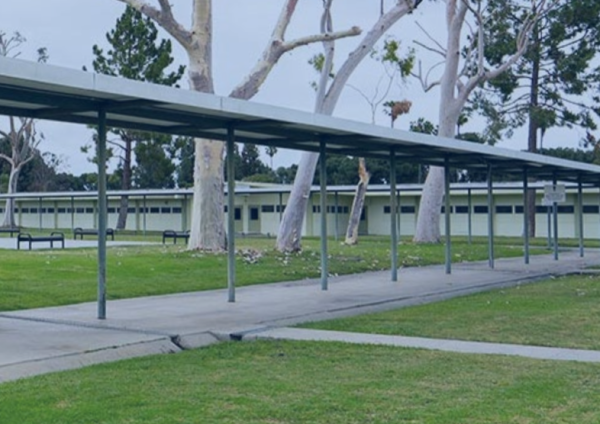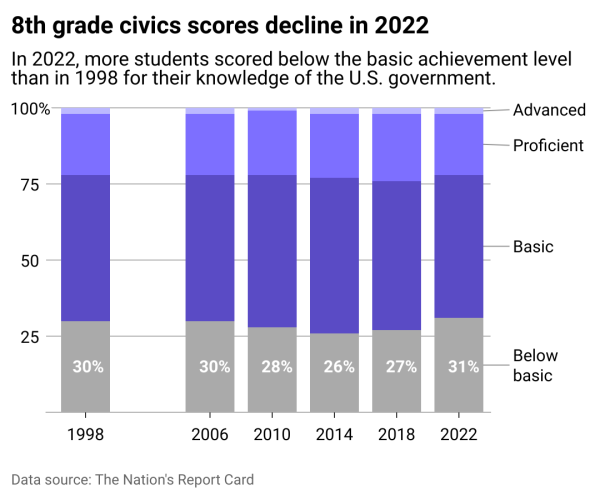The San Bernardino County Board of Supervisors on Tuesday approved a plan to spend over $11.2 million in federal funding to address homelessness.
Three U.S. Department of Housing and Urban Development programs — Community Development Block Grant, HOME Investment Partnerships and Emergency Solutions Grant — will enable the county and participating cities to provide “decent housing, suitable living environments, and expanded economic opportunities” for low- and moderate-income county residents, according to the 2024-25 Annual Action Plan that supervisors approved 5-0.
“CDBG, HOME or ESG funds may be used for emergency shelter, homelessness prevention, housing preservation, capital improvements, public services, housing development, fair housing, and program management,” according to a county statement.
CDBG funds total $6.9 million, with $3.7 million for HOME and $613,906 for ESG, officials said.
Thirteen cities have opted into the county’s 2020-25 HUD Consolidated Plan — Adelanto, Barstow, Big Bear Lake, Colton, Grand Terrace, Highland, Loma Linda, Montclair, Needles, Redlands, Twentynine Palms, Yucaipa and the Town of Yucca Valley. Chino Hills and Rancho Cucamonga participate only in HOME.
CDBG money pays for public facility and street infrastructure projects, homelessness prevention, transitional housing, food distribution, transportation, child care and job training for young people, seniors and veterans, officials said.
“The CDBG allocation for projects is proportionately split between the Cooperating Cities and the County’s unincorporated area,” Carrie Harmon, director of the county housing department, wrote in a report to the board. “The Cooperating Cities’ allocation is approximately $2.8 million and functions as a pass through in which each city receives an individual disbursement based on … current census data. The County’s share of funding is approximately $3.0 million.”
After receiving HOME and ESG funding, the county allocates it through partnerships with housing developers, nonprofit organizations and county departments, officials said.
“Available funds are awarded to select service providers through a procurement process to ensure services are made available countywide,” according to the county statement. “HOME program funds are utilized to help finance the new construction, acquisition, and rehabilitation of affordable housing, as well as Tenant Based Rental Assistance for low- and very low-income families.”
ESG activities are categorized in five program components: street outreach, emergency shelter, rapid rehousing, homelessness prevention and the homeless management information system, which allows HUD to “document homelessness and helps to ensure coordination between service providers while avoiding duplication of services and client data,” the plan states.
SB city receives funds for encampment reduction
The city of San Bernardino will receive nearly $4.6 million to try to reduce homeless encampments, Gov. Gavin Newsom and city officials announced last week.
The project will cover a 5.2-mile corridor along Waterman Avenue that has encampments where approximately 200 homeless individuals live, according to a city statement. The area includes two freeways, State Route 18 and Interstate 210, and extends into areas such as maintenance tunnels of the freeway structure, pedestrian passageways and surrounding neighborhoods.
“This new funding will get people out of tents and into housing across California,” said Newsom, who announced the $192 million grant package April 18 during a virtual press conference attended by San Bernardino Mayor Helen Tran and many other local-level officials from throughout the state.
“But it is not just about addressing homelessness,” Newsom added. “It is about taking back our parks and sidewalks.”
In a statement Tran said, “This funding is a significant step forward to clean up Waterman Avenue and to provide essential support and resources to individuals experiencing homelessness in our city.”
The funding to San Bernardino will provide permanent housing for 60 people, help place 40 or more homeless individuals in interim housing within the targeted area along Waterman Avenue and provide “support services that may lead toward permanent housing,” according to the city statement.
The governor’s announcement included a total of 20 projects in 17 communities statewide.
In Southern California, in addition to San Bernardino’s grant, Los Angeles County will receive $51.5 million, Oceanside will receive $11.4 million and Anaheim will receive $3.1 million, according to the governor’s office. Grants to the remaining 13 municipalities in the central and northern parts of the state range from $2.5 million to $18.2 million.
“The one thing these 17 communities have in common is strong plans to meet the needs of its local unhoused,” California Department of Business, Consumer Services, and Housing Secretary Tomiquia Moss said in a statement.
The state’s Encampment Resolution Funding Program is a competitive grant program that aims to help cities and counties reduce encampments and house the homeless. Officials estimated that the projects funded by the awards announced today will provide services and support for nearly 3,600 individuals of which 2,200 will receive permanent housing.
The California Interagency Council on Homelessness, which is co-chaired by Moss and California Health and Human Services Agency Secretary Mark Ghaly, will administer the encampment grants.







